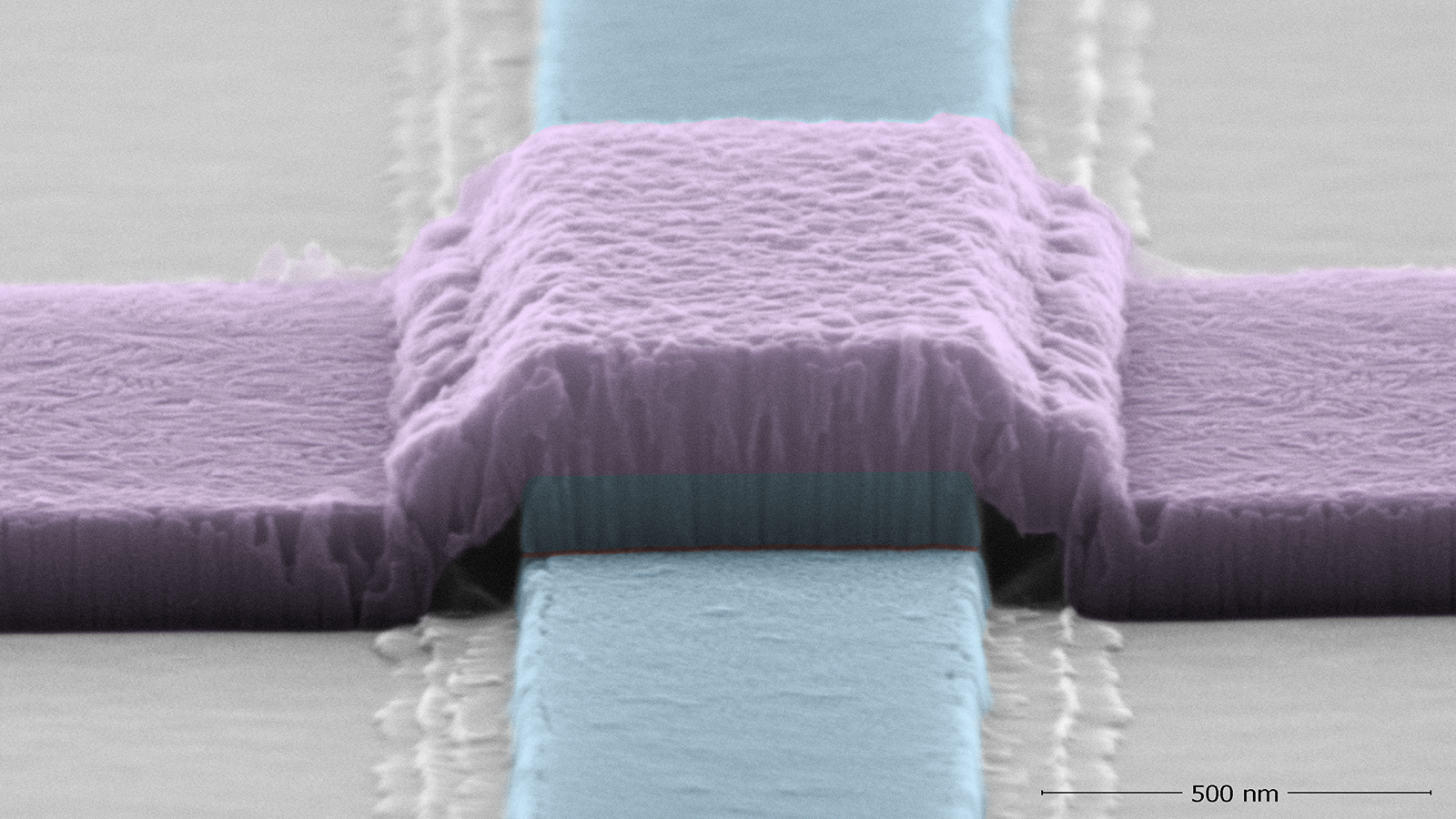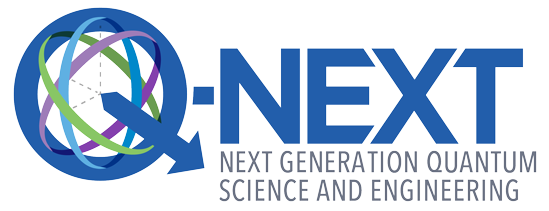qubits
-
PME-led research into protein-based qubits earns $2.75M Moore Foundation grant
Bolstered by a new $2.75 million grant from the Gordon & Betty Moore Foundation, a team led by University of Chicago's Peter Maurer will soon study qubits made from protein. Read More
-

Resurrecting niobium for quantum science
For years, niobium was considered an underperformer when it came to superconducting qubits. Now scientists supported by Q-NEXT have found a way to engineer a high-performing niobium-based qubit and so take advantage of niobium’s superior qualities. Read More
-

In novel quantum computer design, qubits use magnets to selectively communicate
Researchers have begun to use magnets to entangle qubits, the building blocks of quantum computers; the simple technique could unlock complex capabilities. Read More
-
Hannes Bernien awarded the 2023 Klung Wilhelmy Science Prize for pioneering quantum work
From the University of Chicago: Q-NEXT collaborator Hannes Bernien of the University of Chicago has won the Klung Wilhelmy Science Prize in Physics for his pioneering early studies on defect centers in diamonds and work he is currently pursuing to develop quantum technology platforms based on Rydberg atoms. Read More
-
IBM releases first-ever 1,000-qubit quantum chip
From Nature: Q-NEXT partner announces its latest huge chip — but will now focus on developing smaller chips with a fresh approach to error correction. Read More
-

Researchers invent new way to stretch diamond for better quantum bits
A team of researchers at the University of Chicago, Argonne National Laboratory and Cambridge University have announced a breakthrough in quantum network engineering: By “stretching” thin films of diamond, they created quantum bits that can operate with significantly reduced equipment and expense. The change also makes the bits easier to control. The researchers hope the findings, published Nov. 29 in Physical Review X, can make future quantum networks more feasible. Read More
-

Major milestone achieved in new quantum computing architecture
Argonne and partners attained a major milestone toward quantum computing based on single-electron qubits: nearly a thousand-fold increase in coherence time and a first demonstration of scale-up. Read More
-
The consequences of removing the world largest dam, and building a quantum computer using sound waves
From the Science Podcast: University of Chicago's Andrew Cleland discusses his work on using the phonon as the basis of quantum computing. Read More
-
Embracing imperfection for quantum technologies
From Physics Today: Q-NEXT Director David Awschalom co-writes a comprehensive rundown of the use of atomic defects as qubits. These solid-state spin qubits are unlocking applications in nanoscale quantum sensing and are at the forefront of creating distributed, long-distance entanglement that could enable a quantum internet. Read More
-
How splitting sound might lead to a new kind of quantum computer
From The Conversation: Andrew Cleland of the University of Chicago writes about using beam splitters to explore the quantum properties of phonons. His findings could lead researchers to use phonons to build a new type of quantum computer. Read More
In the News
See all In the News-
The best qubits for quantum computing might just be atoms
From Quanta: Mark Saffman of the University of Wisconsin–Madison and Infleqtion is featured in this comprehensive overview of neutral-atom qubit research. Read More
-
How quantum computing could help us understand the universe
From PBS NewsHour: David Awschalom appears in this piece on the next generation of computing, one that will be far more sophisticated and dependent on understanding the subatomic nature of the universe. Read More
-
PME-led research into protein-based qubits earns $2.75M Moore Foundation grant
Bolstered by a new $2.75 million grant from the Gordon & Betty Moore Foundation, a team led by University of Chicago's Peter Maurer will soon study qubits made from protein. Read More
-
Infleqtion unveils 5-year quantum computing roadmap, advancing plans to commercialize quantum at scale
From Quantum Insider: Infleqtion shares a broad business update, including the first look at its new 5-year quantum computing roadmap. The roadmap's centerpiece is Sqorpius, the next phase of Infleqtion’s quantum computing program. Read More
-
Bringing quantum entanglement to the people
From the National Science Foundation: NSF’S Quantum Leap Challenge Institute Hybrid Quantum Architectures and Networks at the University of Illinois Urbana-Champaign, a Q-NEXT partner, has created a working demonstration that brings entanglement between photons to a public setting for the first time. Read More
